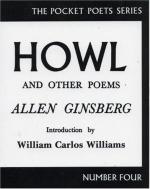|
This section contains 160 words (approx. 1 page at 400 words per page) |

|
Earlier poems: An Asphodel Summary
In this particular poem, which Ginsberg wrote in the Fall of 1953, he talks of desire. He compares desire to an asphodel, a beautiful flower. He says we cannot change desire just as we cannot change the visible reality of a flower. He talks of lying in a living room drunk, naked, and dreaming of satiating his desires. In the end, he says that while he has desires he needs fulfilled, tonight he only has himself, as he is alone. He has no one to give to and to enjoy.
Earlier poems: An Asphodel Analysis
Ginsberg seeks to show the reader that desire is a powerful force. We seek to satisfy our desires but often cannot. He shows how desire is powerful and we cannot ignore its power. He further explains that we are sometimes alone with our...
(read more from the Earlier poems: An Asphodel Summary)
|
This section contains 160 words (approx. 1 page at 400 words per page) |

|




